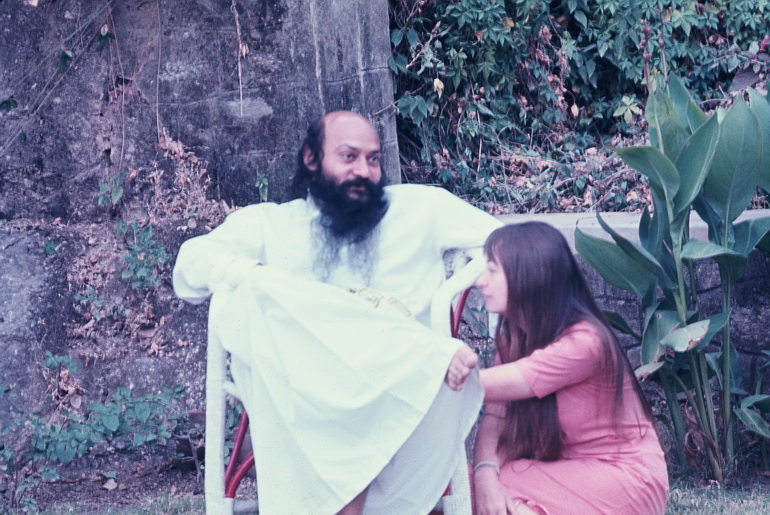
Osho: A Revolutionary Spiritual Leader
Osho, also known as Rajneesh, was a spiritual leader whose teachings blend Eastern spirituality with Western pragmatism. His philosophy centers on inner peace, meditation, and self-awareness, influencing millions worldwide. In this blog, we’ll delve into the depths of Osho’s life, philosophy, controversies, and the mysteries surrounding his death.
Osho’s Early Life
Osho was born on December 11, 1931, in Kuchwada, Madhya Pradesh. His childhood was marked by curiosity and a deep quest for truth. From a young age, Osho questioned societal norms and sought deeper meanings in life, setting the foundation for his future teachings. His early experiences in India profoundly influenced his later philosophical outlook and teachings.
Philosophy and Teachings
Osho’s philosophy is a transformative approach to human consciousness. He proposed a three-step guide to inner peace:
- Release the Past: Let go of past grievances to avoid perpetual suffering.
- Stop the Input: Control the intake of unnecessary information to allow deeper introspection.
- Embrace the Present: Live fully in the present moment for true happiness.
This triad is fundamental to Osho’s teachings, guiding individuals toward tranquility and self-realization.
The Synthesis of Science and Spirituality
Osho uniquely synthesized science and spirituality, advocating that both realms could coexist and enrich human understanding. He emphasized that while science explains the external universe, spirituality explores the internal landscape of human consciousness. This integration allows individuals to seek answers to both existential and practical questions, creating a holistic worldview.
The Pune Ashram and Global Influence
In the 1970s, Osho established his first ashram in Pune, India. This became a hub for meditation and self-exploration, attracting followers from around the world. His teachings transcended cultural boundaries, making a global impact. The ashram continues to be a center for meditation and spiritual growth, drawing seekers from various backgrounds.
Controversies and Rajneeshpuram
In 1981, Osho founded Rajneeshpuram in Oregon, USA. This utopian commune faced numerous controversies and legal battles, including conflicts with local authorities and allegations of criminal activities. Despite these challenges, Rajneeshpuram remains a significant chapter in Osho’s quest for a new societal paradigm.
Conflicts with Local Authorities
The establishment of Rajneeshpuram led to intense conflicts with local authorities. The rapid expansion of the commune and its unconventional practices created friction with the surrounding community. Legal battles over land use, water rights, and other issues became frequent.
Allegations of Criminal Activities
The commune faced allegations of criminal activities, including bioterrorism and wiretapping. These controversies attracted national attention and led to increased scrutiny from the U.S. government. The ensuing legal battles and negative media coverage contributed to the eventual decline of Rajneeshpuram.
Conspiracies and Scrutiny
Osho faced several conspiracies and intense scrutiny throughout his life. Many believe that his growing influence and radical ideas made him a target for government conspiracies. His outspoken criticism of organized religion and his unconventional lifestyle further fueled these tensions.
Government Scrutiny and Deportation
Osho’s growing influence and controversial practices led to intense scrutiny from the U.S. government. In 1985, he was arrested and charged with immigration fraud, resulting in his deportation from the United States. This period was marked by legal battles and significant challenges for Osho and his followers.
The Mysteries Surrounding His Death
Osho’s death on January 19, 1990, is surrounded by mystery. He predicted his death nine months prior, leading to various interpretations and conspiracy theories. Some followers even believe in the involvement of black magic. Despite the mysteries, Osho’s teachings on the impermanence of existence and the embrace of death remain poignant.
Assassination Attempts and Theories
Osho’s life was marked by several assassination attempts, reflecting the extreme measures taken by those who opposed his teachings. The circumstances surrounding his death have led to numerous conspiracy theories, including allegations of poisoning and black magic. These theories continue to intrigue and mystify his followers.
Legacy and Influence
Osho’s teachings continue to inspire individuals globally. His message of inner exploration, self-awareness, and living authentically resonates with people seeking spiritual and practical guidance. Osho’s legacy endures as a powerful force in modern spirituality.
Dr. Shailendra Saraswati on Prakhar K Pravachan
In a podcast with Prakhar K Pravachan, Osho’s brother, Dr. Shailendra Saraswati, offers valuable insights into Osho’s life and teachings. This conversation sheds light on the lesser-known aspects of Osho’s journey and provides a deeper understanding of his philosophy. You can watch the podcast here.
Conclusion
Osho’s life and teachings challenge us to explore our consciousness and seek deeper truths. His unique blend of spirituality and practicality offers valuable tools for personal transformation. As we reflect on Osho’s journey, we are reminded of the importance of inner peace and self-realization.
Subscribe us on YouTube.



